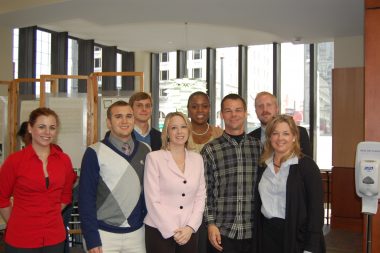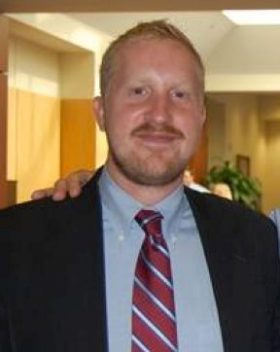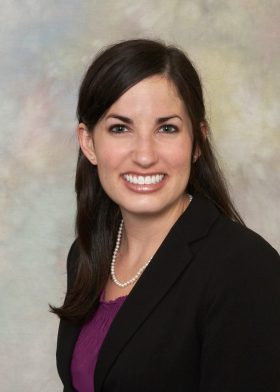On January 19, the Elon Law Innocence Project held an event in downtown Greensboro to raise awareness of wrongful convictions. The fundraiser was a '90s themed dance party that was attended by more than 90 Elon students and helped raise $270 for the Innocence Project. Second-year law students Brennan Aberle and Danielle Appelman organized the event.

The Innocence Project is a non-profit legal clinic affiliated with the Benjamin N. Cardozo School of Law at Yeshiva University and created by Barry C. Scheck and Peter J. Neufeld in 1992. The project is a national litigation and public policy organization dedicated to exonerating wrongfully convicted people through DNA testing and reforming the criminal justice system to prevent future injustice.
“The dance party was really forged out of a desire to both continue to raise awareness about wrongful convictions and to thank the many members of the Elon University School of Law student body who have volunteered hours of time to the Innocence Project,” said Aberle, president of the Elon Law Innocence Project.
The Elon Law Innocence Project, in affiliation with the N.C. Center on Actual Innocence, reviews and investigates innocence claims made by prisoners incarcerated in North Carolina. The fundamental goal of the project is to review files and, upon discovery of a valid innocence claim, assisting prisoners in challenging their wrongful convictions. This project gives law students the opportunity to review, investigate, and make recommendations on real criminal cases.

“Over 70 Elon University law students have graciously devoted their time and efforts over the course of the year to the noble cause of repairing a broken criminal justice system,” said Aberle. “Students who, despite having full course loads, still felt obligated to act to ensure that our country swiftly remedies any miscarriage of justice. Elon students are the backbone of Innocence Project and deserved to be thanked for all of their service.”
Wrongful convictions can be caused by many factors, including mistaken eyewitness identification, false confessions, tunnel-vision in investigations, misconduct, and ineffective representation by defense attorneys. In 2007, the North Carolina Innocence Inquiry Commission was created, the first of its kind in the nation. Since its inception, the Commission has reviewed hundreds of innocence claims and conducted multiple hearings. On February 17, 2010, Gregory Taylor was the first person to be exonerated by this unique process. Mr. Taylor was declared innocent by a panel of three judges after serving 17 years for a murder that he did not commit.

“The great turnout at the event and the money we raised is a great reflection of the type of students we have at Elon Law,” said Appelman, treasurer of the Elon Law Innocence Project. “Elon Law students are devoted to civic participation and to ending injustices in our nation. The event not only raised awareness about DNA exonerations, wrongful convictions and the mission of the Innocence Project, but it also further demonstrated our commitment to community involvement and Elon Law’s focus on engaged learning.”
By Danielle Appelman, L’12


